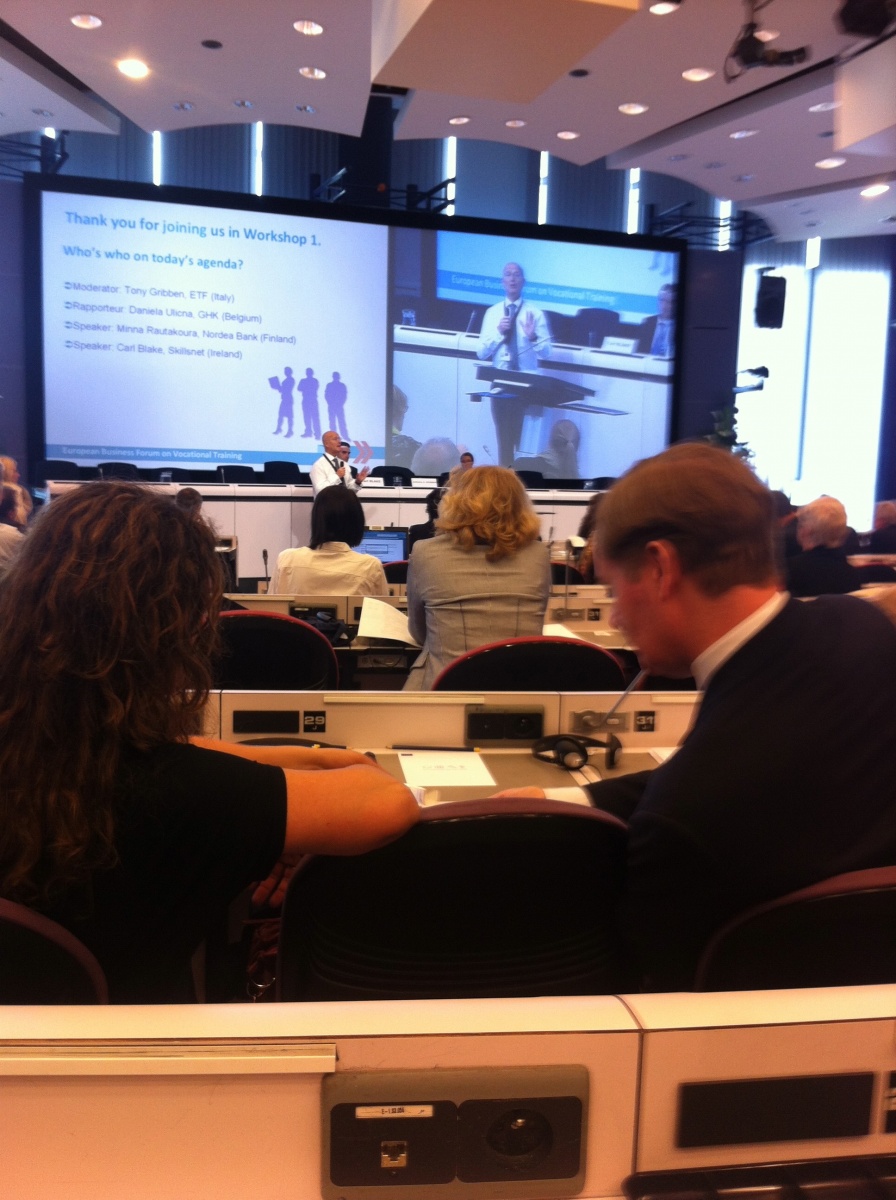Supporting vocational education and training in Europe
As part of the European Business Forum programme - organized by the European Commission - TeNeGen was presented to the cluster members. The event took place in Brussels 7-8 June 2012 with more than 400 participants representing the stakeholders (companies, educational institutes, national agencies.
The European level educational strategies stressed the responsibility of the vocational educational teachers in developing the so called 21st century skills, among them especially the skills needed to become an entrepreneur.

The Bruges Communiqué sets out a vision for vocational education and training in the year 2020, together with a set of measures on how to get there.
Central to this vision is a vocational training system that is modern and attractive to learners and their parents. Everyone needs to have confidence in its quality and know that learners will acquire skills and knowledge which can be used immediately in an employed or self-employed role.

Vocational training includes basic skills, courses which develop expertise in specialist areas and higher level qualifications which are characterised by innovation and excellence. This wide range of provision allows learners to continue their studies at a higher level and university graduates to complete vocational courses which complement their knowledge with more technical and practical training. In the future, most workers should participate in continuing training in order to keep their skills up-to-date or acquire new ones.
By 2020, vocational studies should be easily accessible and practical. All vocational courses should include work-based training in business or industry. By collaborating with employers, training organisations should support learners with less interest in academic study. This should reduce the number of people leaving school early.





